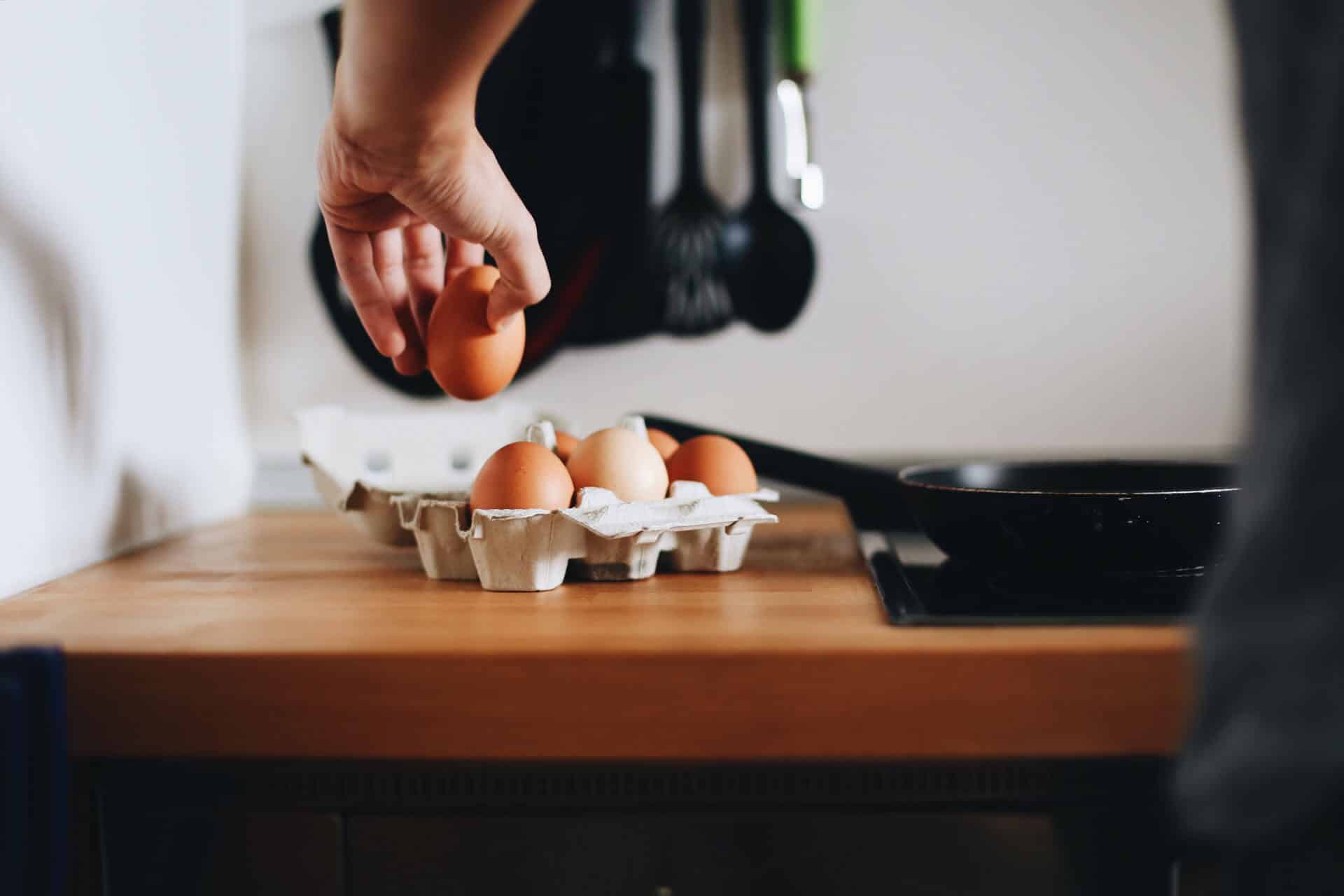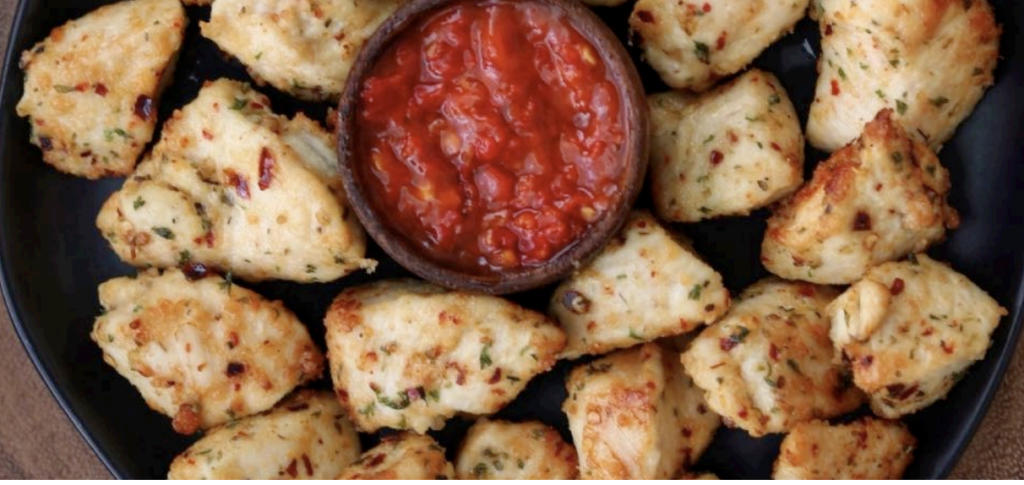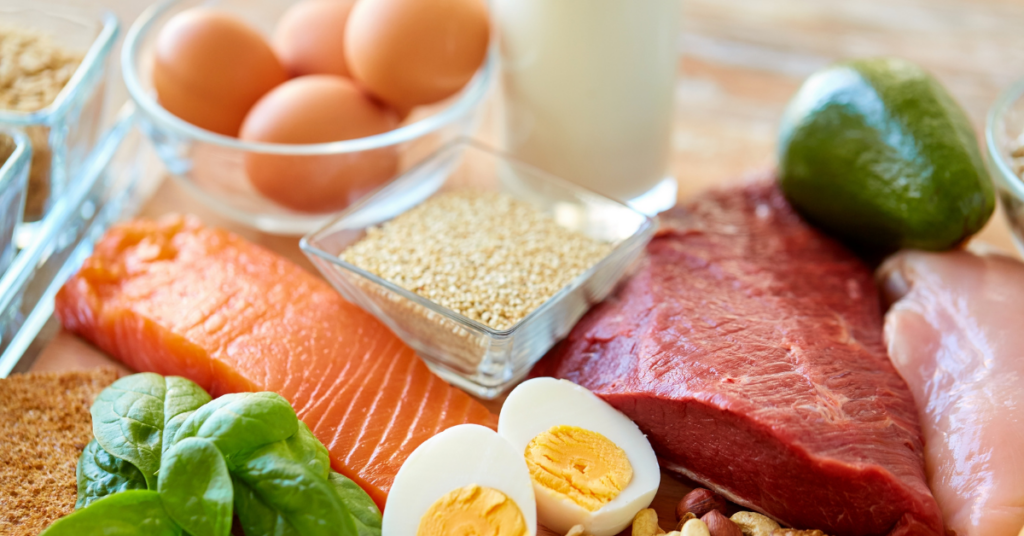Just off of Interstate 40 in Amarillo, Texas sits an old building that’s nearly 50 years old. It’s a hideous shade of yellow with a ghastly blue trim, and a gigantic longhorn in the parking lot.
It also happens to be one of the most famous restaurants in the world. The Big Texan, home of the “free” 72oz steak. The big catch to the steak being free is that you must finish the steak, and the accompanying meal, which consists of a buttered bread roll, shrimp cocktail, a baked potato, and a salad, all in under an hour.
It’s a lot of food, steak especially. In fact, it’s roughly 500g of delicious protein. Which is exactly what we’re talking about, because there’s hardly ever a bad time to talk about protein.
Go grab your steak and a protein shake to wash it down with. Let’s talk about everyone’s favorite macronutrient.
What is protein?
Protein, at its most basic level, is an organic compound that is made up of large molecules, which are in turn made up of long chains of amino acids. Protein is essential for all living things, especially as a structural component of bodily tissues like the liver, kidneys, and biceps.
While we could spend an entire blog talking about the molecular chemistry of protein, all you really need to know is that protein, the way that we think of it, is a combination of amino acids, of which there are 22 in total. 9 of those 22 are essential. The rest we can make on our own, so long as we’re getting enough protein from our diet.
But why is protein important?
When most people think of protein they typically think of bros slamming protein shakes and talking about gainz. This isn’t wrong per se, it’s just simplifying protein and its uses.
When you go to the gym and lift you’re putting the body under quite a bit of stress. The muscles that were forced to work will subsequently breakdown, and this is where protein comes into play.
Eating protein, which is broken down into amino acids in the body, allows you to rebuild those muscles into bigger and stronger versions of their previous selves via a process known as muscle protein synthesis.
And while building muscle is awesome, and we should all do more of it, protein isn’t a one-trick pony.
Protein and vitality.
When it comes to normal bodily function, protein is often overlooked. It plays a role in keeping your organs working properly because after all, it’s a critical component of building those organs.
It also plays a major role in keeping your immune system functioning properly. And then on top of these obviously important points, it tends to taste great. Especially in steak form. But only rare to medium-rare. Anything else and we need to talk about your taste preferences.
Why do some people scoff at protein?
We haven’t hit that point yet where people freak out about protein to the degree that they have the other two macronutrients, fat and carbohydrates. But that doesn’t mean there aren’t people still out there worrying about getting in too much protein.
A lot of the scary stuff about protein stems from fears that excess protein could severely impact kidney function. A big function of protein and building muscle has to do with nitrogen balance, and the primary job of the kidneys is to excrete nitrogen.
So when you wind up with a ton of nitrogen from eating an entire plate full of protein for dinner, that puts a lot of undue stress on your kidneys.
Fortunately, a lot of the fear-mongering headlines borne out of studies on high protein diets tend to be about studies that weren’t done on healthy individuals who ate a balanced diet. If you want to read more in-depth info about protein intake, the upper limits of protein intake, and how safe protein is, this is a great place to start. But in short, if you’re eating plenty of vegetables and staying active, you can still eat plenty of protein and be completely fine.
So you want to know the nitty-gritty details on how protein helps you build muscle, drop fat, and feel less hunger?
One of the most important reasons that people who lift hard need to really pay attention to their protein intake is because it works so well in helping people build muscle.
When you’re getting in plenty of protein, you’re supplying the body with a constant source of amino acids and keeping the body in a positive nitrogen state. When trying to build muscle, being in a positive nitrogen state is a good thing because it essentially shows that you’re recovering properly and getting in enough protein to support your muscle-building quest.
This is part of the reason that BCAA (branched-chain amino acids) supplements used to be so popular. The thought was that if you’re lifting and drinking amino acids at the same time you’ll prevent muscle breakdown to some degree, and build even more muscle because of the increased positive nitrogen balance and availability of even more amino acids.
But protein is also top dog when it comes to dieting.
Remember, protein is delicious. Steak, seafood, chicken, etc. it’s all phenomenal. It also happens to be incredibly satiating. Eating a diet high in protein when dieting allows you to feel fuller while eating fewer overall calories, and this is where the magic really starts to happen.
Protein signals a hormone released from the inner lining of the GI tract called CCK, which sends a signal to your brain telling you that you’re now full, and you need to quit eating.
But we’re not done.
You may or may not be aware that when you eat, you actually burn calories to eat. Digesting all of that isn’t easy, and it requires energy from the body. It just so happens that protein requires more energy to break down when compared to fats and carbohydrates.
In fact, when you eat protein you’re actually burning about 20-30% of the total caloric content of that food to break down the very food you’ve eaten. It’s like eating inception.
Meaning that when dieting, eating a diet high in protein not only helps you stay fuller for longer, but it helps you burn more calories overall than you would if you were eating a diet equally as high in fat or carbs.
So how much protein should you be eating?
Here’s where things get tricky. The RDA (recommended dietary allowance) is set at .8g per kilogram of body weight. Which is confusing, because as Americans we’re not used to using grams and kilograms.
To make it easy for you:
- A 200lb person would be 90.9kgs (200/2.2) that means that individual, when following the RDA, would eat 72.7g of protein.
If you’ve been lifting and paying attention to your nutrition for any appreciable length of time you probably feel like that’s not very much protein. You’re not wrong.
The issue with RDA’s is that they’re always based on healthy, moderately active people. Think of people who go on walks in the evenings after spending most of the day at their desk job.
Now, when you’re active on a consistent basis and work out regularly, those protein needs can change, and rather dramatically. For active individuals, the recommendations jump up to 1.6-1.7g per kilogram of body weight. But that still doesn’t really solve our dilemma. Here’s why:
Let’s say there are two people in the gym fighting over their spot at the smoothie bar in your gym. Both people are 150lbs. But one is 30% body fat, and one is 12% body fat.
It would be crazy to think that the person who is 30% body fat has the exact same protein requirements compared to a woman who is the exact same weight but is only 12% body fat. There’s a major difference in lean mass between those two individuals, and their differing levels of physique development can call for different protein requirements.
If you harken back to earlier, you’ll remember that protein is responsible for maintaining tissue like muscle. When you carry more muscle mass, you need more protein.
For real this time, here’s how much you should eat:
Basing your protein requirements off of bodyweight alone isn’t the most elegant solution. It’s not wrong, but at a certain point it stops being practical. For someone that is relatively lean or at a healthy body weight, it’s a nice place to start. But for individuals who are obese and just starting a weight loss program, aiming for a protein intake of roughly .6g/lb of body weight is a better place to start.
A quick note on obesity and protein: we recognize that diagnosing ourselves as obese isn’t exactly the easiest thing to do. But to simplify things: if you’re a male and over 20% body fat or a female and over 30% body fat, aiming for .6g/lb of body weight is probably the right solution. Or to simplify matters even further, if you have a BMI greater than 30, this applies to you.
How much can you eat at once?
In gyms of old where bros sat in their stringer tank tops and sipped from their protein shakes the standard rule was that you couldn’t have anymore than 30g of protein at a time. The rest was a waste because you couldn’t absorb it.
This is a bit of a fallacy, but my beloved bros of old aren’t exactly wrong. There’s a big difference between absorption and anabolism. Absorption is food actually being broken down, entering the bloodstream, and is used for various purposes. Anabolism is the actual act of building muscle on a cellular level thanks to things I mentioned above like muscle protein synthesis and nitrogen balance.
You can absolutely absorb more than 30g of protein at a time. If I go eat a 24oz steak, which I’ve been known to do, I’m absolutely going to absorb the 135g of protein in that steak.
Will all of it be used in an anabolic manner, though? Not quite. In essence, you’re going to top out muscle protein synthesis after about 30-40g of protein. After that, you’re just getting more protein just to get it. It’s not necessarily going to be immediately used in the muscle-building process.
Because of this, it makes more sense to break up your meals throughout the day, each one containing about 30-40g of protein, in order to keep muscle protein synthesis at optimal levels.
To wrap things up:
Protein very well might be the most under-eaten macronutrient for the vast majority of us. It’s the one that we neglect most often because our modern food environment doesn’t prioritize protein. Quality protein isn’t as easy to come across as carbohydrates and fats, which means that if you’re serious about taking care of your health and your body, you’ll have to put more effort into prioritizing protein than you’re used to. Remember, this is okay. If you’re aiming to eat anywhere between .6g/lb – 1g/lb of your body weight, you’ll likely feel stuffed early on. That’s alright! This is natural because protein is so much more filling than carbohydrates and fat.
Like all things, eating plenty of quality protein gets easier with time and practice. As you adapt your habits to help you get more protein in, your taste preferences will change as well. And like all other positive habits, eating plenty of protein doesn’t yield results overnight. It has a compounding effect. So don’t expect to eat the appropriate amount of protein for a week and see a completely different body staring back at you in the mirror. Give it time. Stay patient.








